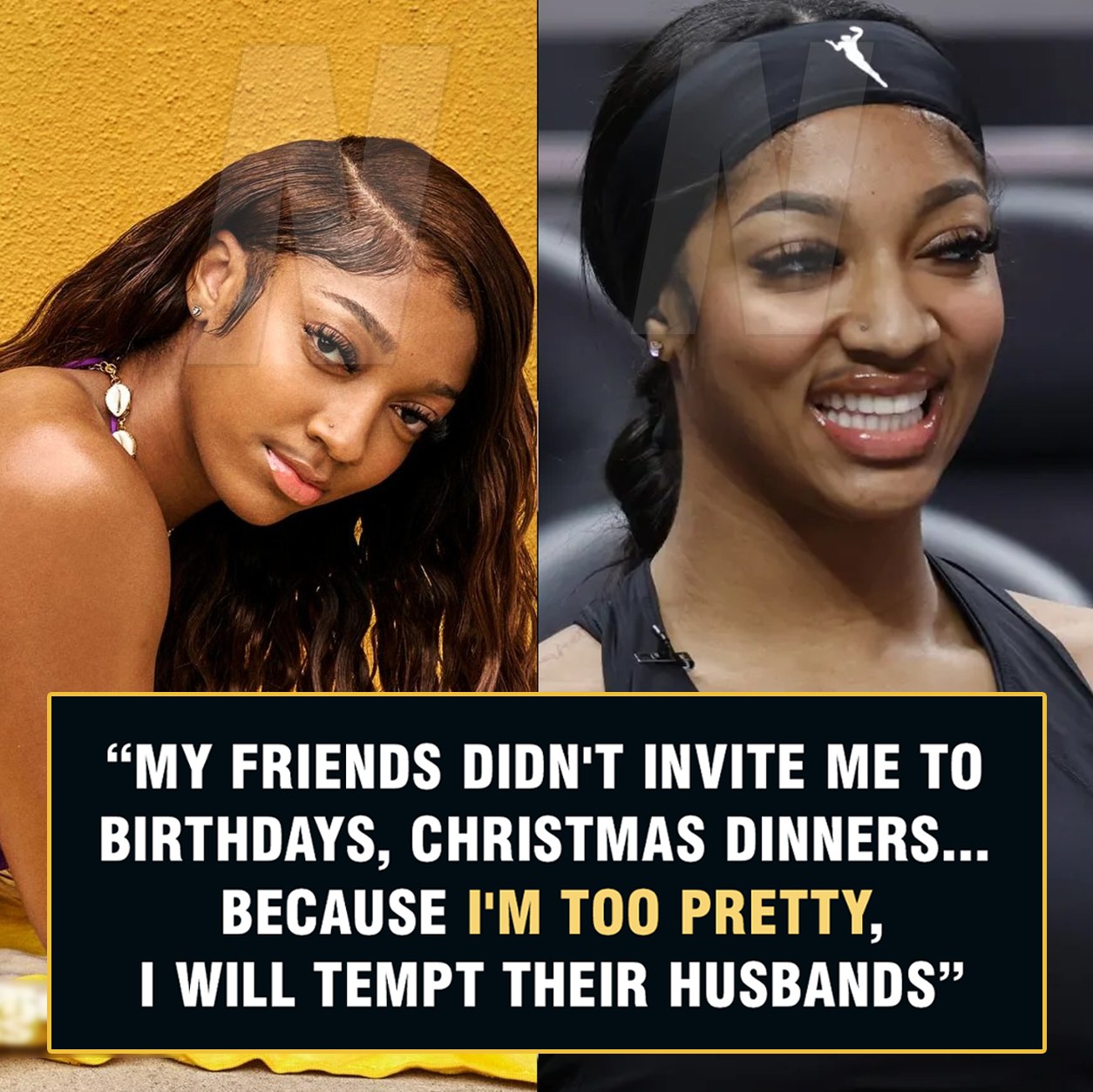Angel Reese has never been one to shy away from the spotlight, but her most recent revelation has sparked a new and unexpected conversation that goes far beyond basketball. In a raw and deeply personal admission, the Chicago Sky star spoke openly about the emotional toll of being viewed as “too attractive” and how that label has cost her friendships, invitations, and a sense of belonging.

Reese, known as the “Bayou Barbie” for her unapologetic embrace of both her beauty and her competitive spirit, shared that even those closest to her often treated her differently because of her looks. “My own friends wouldn’t invite me to birthdays or Christmas dinners,” she revealed. “They said I was too attractive… that I might tempt their husbands.” Her honesty has pulled back the curtain on a painful reality that many women quietly endure but few dare to address publicly: the jealousy, mistrust, and isolation that can accompany beauty. For Reese, this issue is not about how she performs on the court but rather the way her appearance has created walls between her and the people who should have been her support system.
Her comments quickly went viral, generating both sympathy and shock from fans and critics alike. Some applauded her bravery for speaking a truth that is often left unsaid, while others expressed disbelief at the extent to which she had been excluded simply because of her appearance. The story resonated particularly with women who have had similar experiences, serving as a reminder that beauty can sometimes be as isolating as it is celebrated.
Reese, who has built a career not only on her dominance in basketball but also on her confident persona, admitted that being admired for her appearance often comes with a dark side. While her public image is one of strength, glamor, and confidence, she emphasized that the personal reality can be much lonelier than many imagine. “People see the glam, but they don’t always see the pain behind it,” she said, underscoring how outward admiration can sometimes hide inward struggles. The honesty of her words stands in sharp contrast to the carefully curated perfection often displayed on social media.
The conversation was further fueled by Reese’s decision to delete her Instagram account after posting a daring New Year’s Eve outfit that drew both admiration and criticism. The move suggested the toll that public scrutiny continues to take on her, even as she maintains her image as one of the WNBA’s most recognizable stars. Reese’s vulnerability has opened the door to broader conversations about the pressures women face not only in sports and entertainment but also in their personal lives, where attractiveness can be seen as both a blessing and a burden.
At the same time, Reese continues to show her unwavering support for the game she loves and her family. Recently, she attended her brother Julian Reese’s Sweet 16 game with the Maryland Terrapins, proudly wearing a custom-made shirt that celebrated both her brother and her Baltimore roots. The shirt, created by Brown Boy Nation, featured a bold “I’m from Baltimore” slogan, a nod to Derik Queen’s buzzer-beater and postgame comments that had become a rallying cry for Maryland after their Round of 32 victory. The front of the shirt also displayed an image of Julian, showcasing Reese’s pride in her younger brother as he carved out his own name in college basketball.
Even though Maryland fell to Florida in an 87-71 loss that ended their NCAA tournament run, Angel’s presence at the game stood out as a testament to her dedication to her family and her willingness to support Julian through both triumph and disappointment. Her choice to show up in custom threads was not just a fashion statement but a symbolic gesture of pride, unity, and hometown spirit. It reminded fans that behind the headlines and viral moments, Angel Reese is still a sister, a daughter, and a woman committed to her loved ones. The duality of Angel Reese’s public and private life paints a picture of someone who continues to balance extraordinary success with profound personal challenges.
On one hand, she is a celebrated athlete who has captured national attention with her skill, confidence, and individuality. On the other hand, she is a woman navigating the complexities of beauty, scrutiny, and the sometimes isolating nature of fame. Her candid confession about being excluded because of her looks, coupled with her continued presence at meaningful family events, highlights the contradictions of living under constant public observation. At 22, Reese is already redefining what it means to be a modern sports icon. She is more than her victories on the court and more than the persona she projects online.
She is a young woman confronting uncomfortable truths about friendship, jealousy, and identity while still carving out her place as one of basketball’s brightest stars. Her willingness to speak openly about her pain makes her story even more compelling, because it shows that behind the success, the beauty, and the bravado, there is a human being grappling with loneliness, trust, and the desire for genuine connection. In the end, Angel Reese’s journey is not just about the game of basketball—it is about the game of life, where resilience, honesty, and courage often matter more than any stat line.





